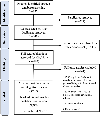Chronic wounds in persons living with dementia: An integrative review
- PMID: 35043568
- PMCID: PMC9186127
- DOI: 10.1111/opn.12447
Chronic wounds in persons living with dementia: An integrative review
Abstract
Background: Persons living with dementia (PLWD) are at risk for chronic wounds; however, they are rarely included in research.
Objectives: To inform practice and research directions, the aim of this integrative review was to identify and synthesise previous knowledge about the characteristics of chronic wounds in PLWD, in terms of chronic wound types, prevalence, setting and interventions.
Design: A literature search was conducted for publications in English using PubMed, Web of Science and CINAHL. The minimum information required for inclusion was how many PLWD enrolled in the study had wounds.
Methods: This integrative review followed the Whittemore and Knafl methodology. Data extraction and synthesis were guided by a directed content analysis, with a coding structure based on an initial review of the literature.
Results: Thirty-six articles met the inclusion criteria. The majority were missing characteristics of PLWD including severity of dementia and race/ethnicity/nationality, and none mentioned skin tone. Most focused on pressure injuries in the nursing home and acute care setting. Few included information on interventions. Only one discussed challenges of wound care for a PLWD exhibiting aggression.
Conclusion: There is a gap in the literature regarding PLWD and chronic wounds other than pressure injuries that are common in older adults (e.g. diabetic foot ulcers, venous leg ulcers). Research is warranted among those PLWD who live alone and those who receive wound care from family caregivers to understand experiences. Knowledge can inform the development of future novel interventions for wound healing. Future research is needed regarding chronic wounds in those who exhibit behavioural and psychological symptoms of dementia.
Relevance to clinical practice: Nurses that care for chronic wounds in PLWD can contribute their knowledge to include information in guidelines on best care practices and contribute their perspective to research teams for future research.
Keywords: chronic wounds; dementia; integrative review; pressure injuries; wound care interventions.
© 2022 John Wiley & Sons Ltd.
Conflict of interest statement
Conflict of Interest
The authors declare that they have no conflict of interest.
Figures
References
-
- AARP and National Alliance for Caregiving. (2020). Caregiving in the United States 2020. Washington, DC: AARP. Retrived from: https://www.aarp.org/content/dam/aarp/ppi/2020/05/full-report-caregiving....doi.10.26419-2Fppi.00103.001.pdf
-
- Aminoff B (2012). End-stage dementia: Aminoff suffering syndrome and decubitus ulcers. Dementia 11(4), 473–481. doi:10.1177/1471301211421224 - DOI
Publication types
MeSH terms
Grants and funding
- 3R01NR015995-04S1/National Institute of Nursing Research and the National Institute of Aging of the National Institutes of Health
- NOT-AG-18-039/National Institute of Nursing Research and the National Institute of Aging of the National Institutes of Health
- K23NR018673/National Institute of Nursing Research and the National Institute of Aging of the National Institutes of Health
- K23 NR018673/NR/NINR NIH HHS/United States
- R01 NR015995/NR/NINR NIH HHS/United States
LinkOut - more resources
Full Text Sources
Medical
Miscellaneous


